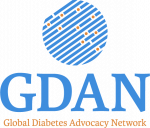Health experts in Pakistan have called for policy measures, including increased taxes, to curb the use of ultra-processed food and sugary drinks, citing the example of Saudi Arabia which has subjected unhealthy foods to heavy excise duties.
In 2019, Saudi Arabia expanded an excise tax charged on tobacco and soda to include electronic cigarettes and all drinks with added sugar as part of its efforts to boost non-oil revenue. It had already imposed a special tax on tobacco and sugary drinks in 2017 as part of a series of steps toward closing a budget deficit caused by low oil prices.
In Pakistan, ultra-processed food products high in salt, sugar and trans fats are top risk factors for Non-communicable Diseases (NCDS), with six out of every 10 deaths linked with NCDS, health experts at an event organized by the Pakistan National Heart Association in Karachi.
“Saudi Arabia is among countries that has done great work to control NCDS and implemented strict policies,” said Munawar Hussain, country coordinator at the Washington-based Global Health Advocacy Incubator.
The Saudi government increased 50% tax on sodas and 100% on energy drinks, which led to a decrease in consumption. Saudi Arabia is among the countries which successfully reduced a growing diabetes rate.
Advocacy Action: Have ultra-processed foods and their impact on health been considered in your country? Can you raise the dangers and how curbing them can improve health outcomes?
